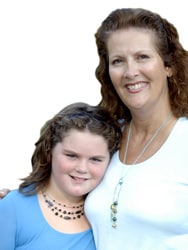If Fetus Does Not Share Blood With Mom Flr 4 Weeks Why Would Alcohol Effect Baby
Basics about FASDs
Fetal alcohol spectrum disorders (FASDs) are a group of conditions that can occur in a person who was exposed to alcohol before birth. These effects can include physical problems and problems with behavior and learning. Often, a person with an FASD has a mix of these problems.
Cause and Prevention
FASDs can occur when a person is exposed to alcohol before birth. Alcohol in the mother's blood passes to the baby through the umbilical cord.
There is no known safe amount of alcohol during pregnancy or when trying to get pregnant. There is also no safe time to drink during pregnancy. Alcohol can cause problems for a developing baby throughout pregnancy, including before a woman knows she's pregnant. All types of alcohol are equally harmful, including all wines and beer.
To prevent FASDs, a woman should avoid alcohol if she is pregnant or might be pregnant. This is because a woman could get pregnant and not know for up to 4 to 6 weeks.

It is never too late to stop alcohol use during pregnancy. Because brain growth takes place throughout pregnancy, stopping alcohol use will improve the baby's health and well-being. Resources are available here.
FASDs are preventable if a baby is not exposed to alcohol before birth.
Signs and Symptoms
FASDs refer to a collection of diagnoses that represent the range of effects that can happen to a person who was exposed to alcohol before birth. These conditions can affect each person in different ways, and can range from mild to severe.
A person with an FASD might have:
- Low body weight
- Poor coordination
- Hyperactive behavior
- Difficulty with attention
- Poor memory
- Difficulty in school (especially with math)
- Learning disabilities
- Speech and language delays
- Intellectual disability or low IQ
- Poor reasoning and judgment skills
- Sleep and sucking problems as a baby
- Vision or hearing problems
- Problems with the heart, kidneys, or bones
- Shorter-than-average height
- Small head size
- Abnormal facial features, such as a smooth ridge between the nose and upper lip (this ridge is called the philtrum)
FASD Diagnoses

Different FASD diagnoses are based on particular symptoms and include:
- Fetal Alcohol Syndrome (FAS): FAS represents the most involved end of the FASD spectrum. People with FAS have central nervous system (CNS) problems, minor facial features, and growth problems. People with FAS can have problems with learning, memory, attention span, communication, vision, or hearing. They might have a mix of these problems. People with FAS often have a hard time in school and trouble getting along with others.
- Alcohol-Related Neurodevelopmental Disorder (ARND): People with ARND might have intellectual disabilities and problems with behavior and learning. They might do poorly in school and have difficulties with math, memory, attention, judgment, and poor impulse control.
- Alcohol-Related Birth Defects (ARBD): People with ARBD might have problems with the heart, kidneys, or bones or with hearing. They might have a mix of these.
-

People with ND-PAE have problems with thinking, behavior, and life skills. ND-PAE occurs from being exposed to alcohol during pregnancy.
Neurobehavioral Disorder Associated with Prenatal Alcohol Exposure (ND-PAE): ND-PAE was first included as a recognized condition in the Diagnostic and Statistical Manual 5 (DSM 5) of the American Psychiatric Association (APA) in 2013. A child or youth with ND-PAE will have problems in three areas: (1) thinking and memory, where the child may have trouble planning or may forget material he or she has already learned, (2) behavior problems, such as severe tantrums, mood issues (for example, irritability), and difficulty shifting attention from one task to another, and (3) trouble with day-to-day living, which can include problems with bathing, dressing for the weather, and playing with other children. In addition, to be diagnosed with ND-PAE, the mother of the child must have consumed more than minimal levels of alcohol before the child's birth, which APA defines as more than 13 alcoholic drinks per month of pregnancy (that is, any 30-day period of pregnancy) or more than 2 alcoholic drinks in one sitting.
The term fetal alcohol effects (FAE) was previously used to describe intellectual disabilities and problems with behavior and learning in a person whose mother drank alcohol during pregnancy. In 1996, the Institute of Medicine (IOM) replaced FAE with the terms alcohol-related neurodevelopmental disorder (ARND) and alcohol-related birth defects (ARBD).
Areas Evaluated for FASD Diagnoses
The term FASDs is not meant for use as a clinical diagnosis.
Diagnosing FASDs can be hard because there is no medical test, like a blood test, for these conditions. And other disorders, such as ADHD (attention-deficit/hyperactivity disorder) and Williams syndrome, have some symptoms like FAS.
To diagnose FASDs, doctors look for:
- Prenatal alcohol exposure; although confirmation is not required to make a diagnosis
- Central nervous system problems (e.g., small head size, problems with attention and hyperactivity, poor coordination)
- Lower-than-average height, weight, or both
- Abnormal facial features (e.g., smooth ridge between nose and upper lip)
Treatment

FASDs last a lifetime. There is no cure for FASDs, but research shows that early intervention treatment services can improve a child's development.
There are many types of treatment options, including medication to help with some symptoms, behavior and education therapy, parent training, and other alternative approaches. No one treatment is right for every child. Good treatment plans will include close monitoring, follow-ups, and changes as needed along the way.
Also, "protective factors" can help reduce the effects of FASDs and help people with these conditions reach their full potential.1, 2
Protective factors include:
- Diagnosis before 6 years of age
- Loving, nurturing, and stable home environment during the school years
- Absence of violence
- Involvement in special education and social services
Learn more about treatments »
Get Help!
If you or the doctor thinks there could be a problem, ask the doctor for a referral to a specialist (someone who knows about FASDs), such as a developmental pediatrician, child psychologist, or clinical geneticist. In some cities, there are clinics whose staffs have special training in diagnosing and treating children with FASDs. To find doctors and clinics in your area visit the National and State Resource Directoryexternal icon from the National Organization on Fetal Alcohol Syndrome (NOFAS).
At the same time as you ask the doctor for a referral to a specialist, call your state or territory's early intervention programto request a free evaluation to find out if your child can get services to help. This is sometimes called a Child Find evaluation. You do not need to wait for a doctor's referral or a medical diagnosis to make this call.
Where to call for a free evaluation from the state depends on your child's age:
If your child is younger than 3 years old, Call your state or territory's early intervention program and say: "I have concerns about my child's development and I would like to have my child evaluated to find out if he/she is eligible for early intervention services."
Find your state's early intervention contact information here.
Learn more about early intervention »external icon
If your child is 3 years old or older, contact your local public school system.
Even if your child is not old enough for kindergarten or enrolled in a public school, call your local elementary school or board of education and ask to speak with someone who can help you have your child evaluated.
Learn more about this process »external icon
References
Streissguth, A.P., Bookstein, F.L., Barr, H.M., Sampson, P.D., O'Malley, K., & Young, J.K. (2004). Risk factors for adverse life outcomes in fetal alcohol syndrome and fetal alcohol effects. Developmental and Behavioral Pediatrics, 5(4), 228-238.
Streissguth, A.P., Barr, H.M., Kogan, J. & Bookstein, F. L., Understanding the occurrence of secondary disabilities in clients with fetal alcohol syndrome (FAS) and fetal alcohol effects (FAE). Final report to the Centers for Disease Control and Prevention (CDC). Seattle: University of Washington, Fetal Alcohol & Drug Unit; August 1996. Tech. Rep. No. 96-06.
If Fetus Does Not Share Blood With Mom Flr 4 Weeks Why Would Alcohol Effect Baby
Source: https://www.cdc.gov/ncbddd/fasd/facts.html
0 Response to "If Fetus Does Not Share Blood With Mom Flr 4 Weeks Why Would Alcohol Effect Baby"
Enregistrer un commentaire